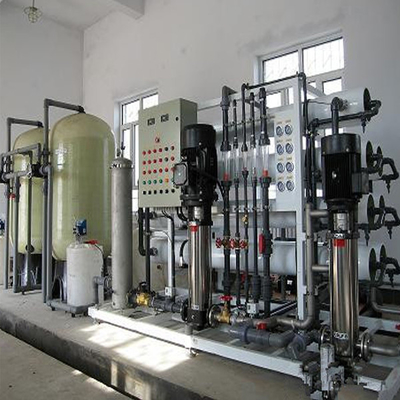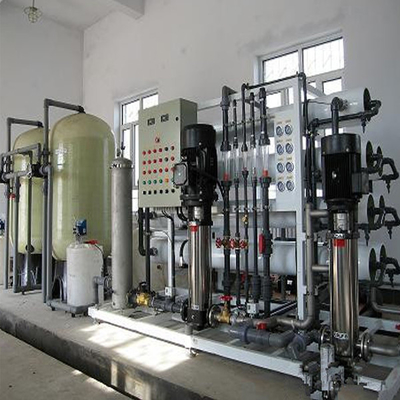-
Condensate Water Recovery Device
-
Reverse Osmosis Equipment
-
Fully Automatic Water Softener
-
Industrial Sand Filter
-
Water Supply Equipment
-
Chemical Dosing Device
-
Container Flipper
-
Container Loading and Unloading Machine
-
Truck Flipper
-
Electric Transfer Cart
-
Electronic Weighbridge
-
Mobile Loading Dock Ramp
-
Air Compressor Heat Recovery
-
Water Treatment Accessories
Advanced Reverse Osmosis Equipment For Ultrafiltration And Purified Water By Tonglida

Contact me for free samples and coupons.
Whatsapp:0086 18588475571
Wechat: 0086 18588475571
Skype: sales10@aixton.com
If you have any concern, we provide 24-hour online help.
x| Features | High Efficiency, Energy-saving, Environmentally Friendly, Intelligent, And Versatile. | Origin | Taian, Shandong |
|---|---|---|---|
| Product Information | RO Reverse Osmosis Water Treatment Equipment For Purified Water, Ultrapure Water, And Ultrafiltration | Product Material | Composite Material |
| Application Fields | Electronics, Industrial, Pharmaceutical, Food, And Other Industries For The Preparation Of Purified Water And Ultrapure Water. | Brand | Tonglida |
| Highlight | advanced reverse osmosis equipment,advanced reverse osmosis system for sale,ultrafiltration reverse osmosis equipment |
||
Product Description:
Reverse osmosis systems consist of pre-treatment and RO main units which are designed to meet the user's material and water quality requirements. The RO membrane type selection can be customized to suit the user's desired specifications.
The RO membrane is a high molecular material processed to create a process membrane. It allows only water molecules to pass through while excluding solutes. The semi-permeable membrane is subjected to high pressure with a pump. The pressure of the feedwater on one side of the membrane exceeds the osmotic pressure. As a result, water molecules from the feedwater can permeate through the membrane to the other side, resulting in pure water.
Inorganic salts, heavy metal ions, organic substances, bacteria, colloids, and other impurities in the feedwater are unable to pass through the semi-permeable membrane. These impurities are instead discharged with the concentrate. The selection of RO membrane types can be customized according to the user's material and water quality requirements.
Features:
Our products boast high efficiency, which means that they complete tasks with the least amount of energy and time possible. This not only saves resources but also reduces costs, making it more affordable for users.
In addition, they are also energy-saving, which equates to long-term savings on power bills while promoting eco-friendly habits. This feature is especially important in current times as the world continues to face environmental challenges that require everyone's attention.
Furthermore, we prioritize environmentally friendly products, which means that our products have minimal impact on the environment. By using eco-friendly materials and following sustainable practices during the manufacturing process, we contribute to a healthier planet.
Moreover, our products are equipped with intelligent technology that adapts to your needs, creating a customized experience that enhances convenience and user satisfaction. With the evolution of technology, our products can connect and integrate with various devices, making them versatile for different applications and settings.
Technical Parameters:
When it comes to filtration precision, reverse osmosis membrane excels in that area with a pore size of 0.0001 micrometers. In contrast, a typical PP cotton filter cartridge has a pore size of 5 micrometers, and an ultrafiltration membrane has a pore size of 0.01 micrometers. The pore size to filter out bacteria and heavy metal ions is calculated at 0.001 micrometers, which means that reverse osmosis equipment is highly effective in removing impurities and bacteria from water.
Another significant advantage of reverse osmosis equipment is that the water production capacity can vary from 1 to 100 tons, depending on the specific requirements. For household use, the minimum water production capacity is around 7.8 liters per treatment. Moreover, the equipment can be configured to produce different amounts of water, such as 0.5 tons, 1 ton, 2 tons, 5 tons, 10 tons, 50 tons, or 100 tons.
Reverse osmosis systems have an intelligent control system consisting of fully automatic control valves, which can be set based on flow rate or time. In addition, the filter media also offers online self-cleaning capabilities, eliminating the need for manual monitoring. Its intelligent control system has made it convenient, fast, and labor-saving.
The use of quartz sand, activated carbon, scale inhibitors, fine filtration, and five-stage reverse osmosis filtration all contribute to extend the equipment's lifespan. As a result, it can last longer than other conventional water filtration systems.
One of the most significant strengths of reverse osmosis equipment is its high water recovery rate, which can reach up to 75%. This makes it much more efficient than other filtration systems.
Applications:
There are several industries that require purified water and ultrapure water in their processes, including electronics, industrial, pharmaceutical, and food industries. The preparation of these types of water is essential to ensure the quality and safety of the products produced in these industries.
In the textile and chemical industries, water is purified and prepared for process water/chemical circulating water, and the manufacturing of chemical products. This is necessary to avoid contamination and ensure the consistent quality of the products.
Water purification and preparation are also crucial to the food and beverage industry, as it is necessary for drinking purified water, beverages, beer, liquor, health products, and other related products. The quality of the water used in the production of these products must meet strict standards to ensure safety and consistency.
Water treatment can be used to concentrate and recover useful substances in industrial production. This process is essential in ensuring the efficient use of resources and reducing waste.
The power industry requires high-quality water for their equipment, including pretreatment of high-pressure boiler feedwater, boiler feedwater for thermal power boilers, and low-pressure boiler power systems in plants and mines. The quality of the water used in these processes is essential to ensure the safety and efficiency of the equipment.
Desalination and desalting of brackish water and seawater is necessary for areas where freshwater is scarce. This is particularly important for islands, ships, offshore drilling platforms, and brackish water areas.
The primary desalination equipment is used in pure water systems that require high-purity water production. This equipment is essential to ensure the consistent quality of the water used in these systems.
Many enterprises and institutions, including communities, real estate properties, schools, factories, hospitals, tea houses, hotels, beauty salons, and canteens, require purified or ultrapure water for their operations.
The production of bottled water, mineral water, and other packaged water requires purified water. Purification and preparation ensure the safety and consistency of these products.
Water for the electronics industry, such as rinsing water for integrated circuits, silicon wafers, display tubes, and other electronic components, must be of high quality to avoid contamination and ensure the effectiveness of the equipment.
Similarly, in the pharmaceutical industry, water must meet strict standards to ensure the safety and consistency of large-volume infusion, injections, tablets, biochemical products, equipment cleaning, and other related products.
Finally, ultra-pure water is required for other process uses, including automotive, household appliance painting, coated glass, cosmetics, fine chemicals, and other related products. Purification and preparation of water are essential to meet strict quality standards and ensure the consistency of the products produced.




